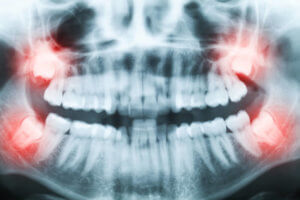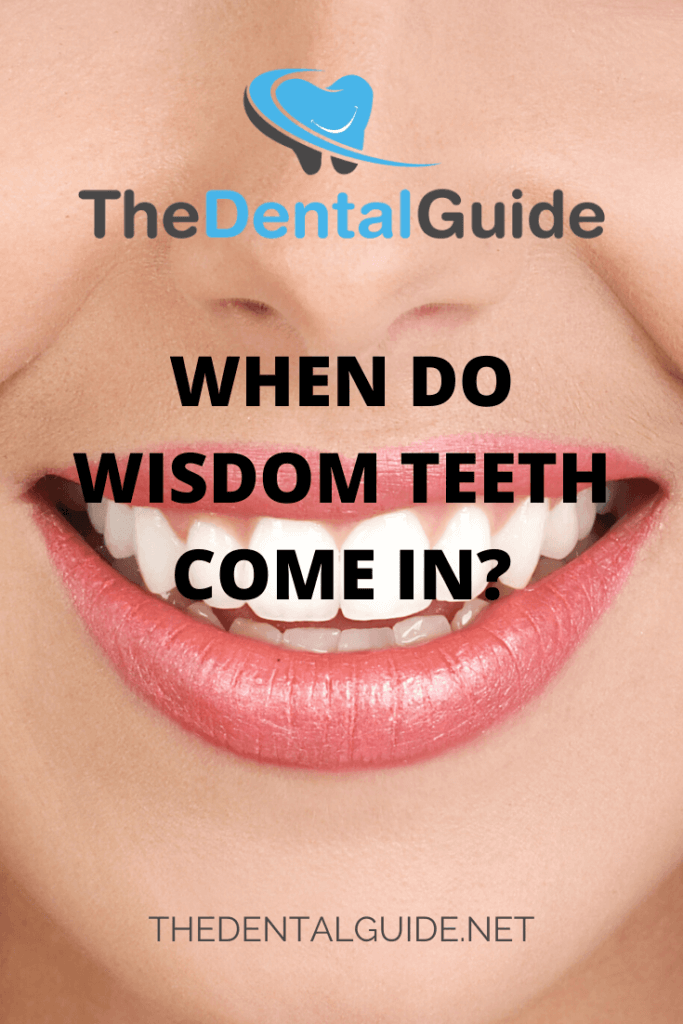Wisdom teeth are a symbol of one’s coming-of-age experience since they come through for most people during their late teens or early twenties. In fact, the third molars earned their name because they emerge later than our other teeth when we’re a bit wiser than we were as kids.
Since wisdom teeth tend to mean discomfort and pain, there is a lot of misinformation and misunderstanding related to those pesky third molars. Hopefully, we can dispel some of the myths to give you a better understanding of wisdom teeth and how to handle them.
Why Do We Have Wisdom Teeth?
Today, most people do not require their wisdom teeth, and often need them removed because they cause pain and disrupt tooth alignment. However, wisdom teeth once served a purpose.
Our ancestors relied on wisdom teeth and had wider jaws to accommodate them. Early in human existence, food was tougher to break down and chew. The extra set of molars made a difference for our ancestors.
Over time, humans learned to cook and prepared softer foods. Our jaws also narrowed, so we don’t have as much room to accommodate wisdom teeth.
Perhaps we will eventually lose the ability to grow wisdom teeth, in fact, some people already have. Depending on ancestry, between 10 per cent and 45 per cent of people lack at least one wisdom tooth.
What Age Do Wisdom Teeth Come In?

Generally, kids start cutting their permanent teeth in primary school and have a mouth full of permanent teeth before starting secondary school. However, the third molars, or wisdom teeth, come later. So, when do wisdom teeth come in, and how long does it take for wisdom teeth to grow in?
Though they start forming during the pre-teen years, third molars take years to grow in. Some people may experience wisdom tooth growing symptoms earlier in their teen years, but most don’t notice anything until their late teens or early twenties.
Dental x-rays can show the development and progression of wisdom teeth. Therefore, it’s helpful to see your dentist regularly, especially during pre-teen and teenage years, to monitor those molars. You don’t want third molars to break through and mess up the alignment of your other teeth.
Signs Wisdom Teeth Are Coming In
Even if you have regular x-rays taken at your dental check-ups, you may experience other signs of wisdom teeth coming in. If you know that third molars could be an issue for you, it’s a good idea to watch for these common symptoms so that you can be proactive.
Gum Irritation and Discomfort
Just like a child cutting primary and permanent teeth, the gums suffer the most. You may experience a range of symptoms that affect the soft tissues around the eruption point.
- Frequent pain and tenderness along the gumline occurs as the tooth breaks through the tissue
- Swelling or redness of your gums around the eruption site is common
- Frequent biting of tongue and cheek may indicate the eruption of third molars, especially if you don’t have room for them
Localised and Regional Pain
It may seem strange that headaches and earaches can indicate wisdom tooth eruption, but many kids experience these pains when cutting teeth. As pressure builds up around the teeth, soft tissue, and jaw, it can trigger headaches and earaches.
Infections
Sometimes wisdom teeth break through incorrectly or incompletely. When this happens, debris, like food particles, can stick in crevices and cause infections. If you suspect an infection, contact a dental professional immediately to prevent serious complications.
Treatment Options
What are your options if you do have problems with your wisdom teeth? Many people assume that extraction is the only recourse for wisdom teeth, but that’s not necessarily true.
Some people have room to accommodate the extra teeth and don’t require extractions. The process of cutting teeth is not always pleasant, but there are ways to mitigate the pain and tenderness until they grow in completely.
- Over the counter pain relievers can help manage wisdom tooth discomfort.
- Essential oils, like clove and peppermint, can provide some relief.
- Swishing a saltwater solution around your mouth can reduce pain and the risk of infection.
- Adopting an anti-inflammatory diet full of fruits, vegetables, and healthy proteins can reduce swelling and discomfort.
Even with excellent oral care, many people still need their wisdom teeth extracted, but pain and discomfort alone are not always a good enough reason. However, if you develop an infection or your wisdom teeth are affecting the alignment of other teeth, your dentist will likely perform an extraction.
If you’re concerned about your wisdom teeth or related complications, it’s important to reach out to your dentist as soon as possible. Only a dental professional can determine the best way to manage your case.
